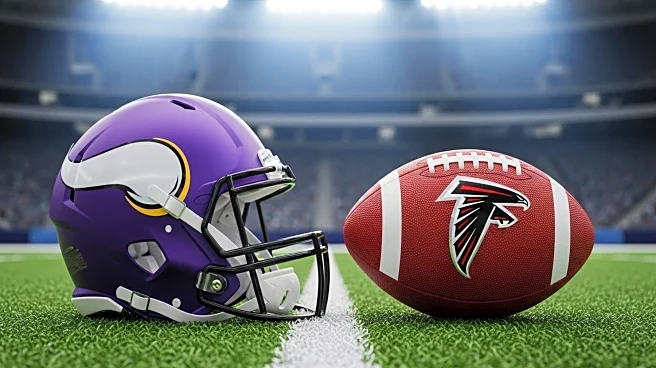What's Happening?
Kirk Cousins, former quarterback for the Minnesota Vikings, has transitioned to the Atlanta Falcons following a significant Achilles injury in 2023. Despite a strong performance with 18 touchdowns in less than eight games, Cousins' injury marked his last play for the Vikings. The team drafted J.J. McCarthy as his successor, signaling a shift in their long-term strategy. Cousins, seeking stability, signed a four-year, $180 million contract with the Falcons in 2024. He cited a lack of long-term commitment from the Vikings as a key reason for his departure. The Falcons, initially committed to Cousins as their starter, later drafted Michael Penix Jr., creating competition and pressure for Cousins to perform. His subsequent arm injury led to Penix taking over as the starting quarterback.
Why It's Important?
Cousins' move to the Falcons highlights the volatility and strategic shifts within NFL teams regarding player contracts and team dynamics. His departure underscores the importance of long-term planning and commitment in professional sports, affecting team morale and performance. For the Falcons, acquiring Cousins initially promised stability, but the drafting of Penix indicates a focus on future potential over immediate results. This situation reflects broader trends in the NFL where teams balance veteran experience with emerging talent, impacting player careers and team success.
What's Next?
Cousins remains with the Falcons as a backup, with his future contingent on his performance and the team's strategic decisions. The Falcons face a decision on whether to retain Cousins or focus on developing Penix as their primary quarterback. This scenario will influence the team's performance in upcoming seasons and could lead to further roster changes. For Cousins, maintaining his position in the NFL will depend on his ability to adapt and perform under pressure, potentially influencing his career trajectory and legacy.









